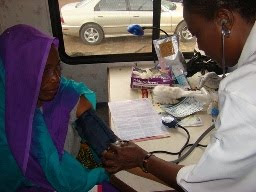
Several studies have shown a high prevalence of HIV/AIDS (3.6%) in Nigeria translating to 2.32million Nigerians living with AIDS, with over 50% in rural communities. Probable factors include cultural and social values, risky sexual behaviors, gender inequality, and poor access to healthcare services. Consequently, this leads to increase in maternal/child mortality, incidence/prevalence of HIV/STI among at risk persons, and infringement on the right to health.
We see a Nigeria where quality health care is available, affordable and accessible; where patients are treated with dignity and their human rights respected. At CRH, we advocate for the right to health, provide service delivery and promote respect and ethics among vulnerable populations. Our innovative programs has changed women’s lives in the community, advocated for policy changes affecting women’s access to health, upgrade of primary health care centers. Our innovative programs have put smiles on the faces of women and children in rural communities. Now, women and girls in these communities have access to free quality health care delivery through our Health On Wheels. Also we have provided activities that advance their sexual reproductive health and rights. In mitigating the burden of HIV/AIDS, we have scale up uptake of HIV Counseling and Testing among vulnerable groups, and referred HIV positive clients to ART centers and support groups. In communities and across several vulnerable groups we continuously provide intervention activities, advocate for the right to health as a fundamental human right and defend cases on human right violations.
With increased support, we would increase women’s access to reproductive healthcare services, contribute in reducing the vulnerability of at risk persons to HIV/STI, and advocate for policies that support the right to health. We would continuously strengthen the capacity of healthcare providers’ to improve delivery of services and advocate for the transformation of primary healthcare centers to improve access to affordable, accessible and available healthcare services.

